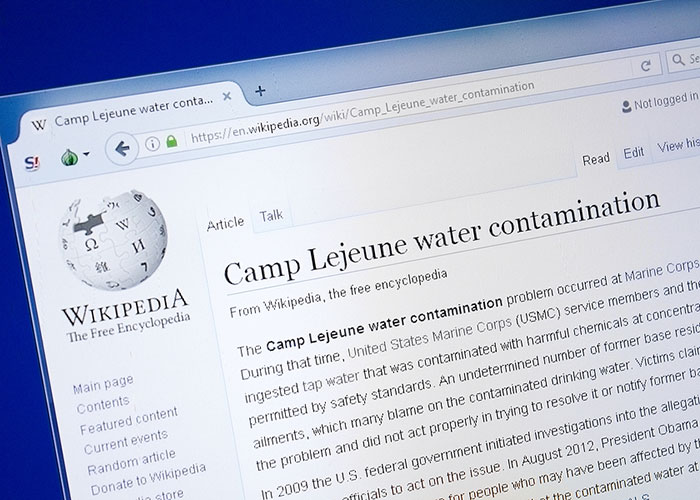
Miscarriage is one of many tragic conditions that have been associated with exposure to toxic chemcials—or more specifically, volatile organic compounds (VOCs)—which were present at U.S. Marine Corp Base Camp Lejeune and MCAS New River, North Carolina for a number of decades. Toxins like trichloroethylene (TCE), perchloroethylene (PCE), benzene, and vinyl chloride, which are linked to miscarriage, were either improperly stored or disposed of on or nearby the base. Miscarriage joins a list of conditions including several cancers, Parkinson’s disease, birth defects, and infertility, for which veterans have been fighting for benefits.
A number of conditions, mostly cancers, are part of the Camp Lejeune presumptive conditions list, which means veterans do not need to provide a medical nexus linking their diagnosis for certain conditions to their military service record, as long as they can prove they served for at least 30 days at Camp Lejeune or MCAS New River between August 1, 1953, and December 31, 1987, and that they did not receive a dishonorable discharge. Veterans suffering from presumptive conditions are eligible for monthly disability compensation.
Healthcare Benefits for Camp Lejeune Miscarriages
Miscarriage does not make the list of presumptive conditions and does not qualify you for disability compensation, but it does appear on a list of fifteen conditions for which veterans and their family members who were present at Camp Lejeune or MCAS New River can receive financial assistance. Thanks to the Camp Lejeune Families Act of 2012, you may apply for cost-free healthcare from VA regarding any of these conditions.
- Esophageal cancer
- Breast cancer
- Kidney cancer (presumptive)
- Multiple myeloma (presumptive)
- Renal toxicity
- Female infertility
- Scleroderma
- Non-Hodgkin’s lymphoma (presumptive)
- Lung cancer
- Bladder cancer (presumptive)
- Leukemia (presumptive)
- Myelodysplastic syndromes (presumptive)
- Hepatic steatosis
- Miscarriage
- Neurobehavioral effects
To apply for reimbursement, you must fill out a Camp Lejeune Family Member Program Application (VA Form 10-10068), as well as provide proof of your relationship to the veteran stationed at either location, documentation of your presence there, medical records showing your current diagnosis, and itemized statements showing services rendered. There is no time limit set if you’re filing a claim for any of the above conditions.
Camp Lejeune Lawsuits
According to Section 804 of the Honoring Our PACT Act, also known as the Camp Lejeune Justice Act of 2022, you may file lawsuits for “appropriate relief for harm caused by exposure to contaminated water” in the Eastern District of North Carolina. VA assures veterans that filing a lawsuit for their own relief or for their family member’s relief will in no way affect the amount of veterans’ disability compensation, or your eligibility in the future.
However, a veteran’s disability compensation may affect the award given to you due to a successful lawsuit. This will likely only be in cases when VA disability compensation or healthcare benefits already cover costs called for in the award.
Assistance With Your Claim
Miscarriage is another tragic possible outcome from toxic exposure at Camp Lejeune, and veterans and their families deserve compensation and assistance for the harmed done to them. Thankfully, there are new laws in place to help you get assistance more quickly, but it can still often be an uphill battle to get file your claims or organize a lawsuit.
For assistance with your claim or appeal for VA disability benefits, or a lawsuit for any other condition related to Camp Lejeune toxic exposure, contact VA Disability Group PLLC at 844-VET-LAWS or write to us online.





Comments are closed